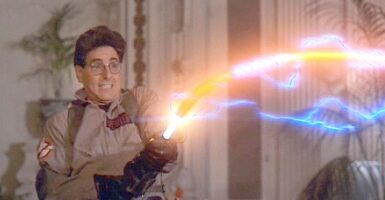The Walking Dead: Mid-Season Report Card
This article is more than 2 years old
 More than a report card for AMC’s The Walking Dead, think of this as a one of those progress reports that they sent home in the middle of the term to let your parents know how you were coming along. They tracked your development, noted areas where you lagged, and generally told the world where you needed to pick up the slack. This gives us an open forum to talk about what the show is doing well thus far in season four, areas where there is room for improvement, and things we would like to see the underachieving series accomplish moving into the final eight episodes of the year.
More than a report card for AMC’s The Walking Dead, think of this as a one of those progress reports that they sent home in the middle of the term to let your parents know how you were coming along. They tracked your development, noted areas where you lagged, and generally told the world where you needed to pick up the slack. This gives us an open forum to talk about what the show is doing well thus far in season four, areas where there is room for improvement, and things we would like to see the underachieving series accomplish moving into the final eight episodes of the year.
Overall, season four has been a marked improvement over the previous installments. It’s probably the best the show has been since the first two episodes of season one. I maintain that The Walking Dead really started coming off the rails with the third episode—the first two episodes were good, three and four were okay, and the final two were complete garbage. In AMC’s defense, I don’t think anyone expected the show to be such a massive hit, why else would they order a season that’s only six episodes long.
In my opinion, the two biggest improvements in The Walking Dead this season are creating a level of consistency, and getting away from the endless, tedious back and forth debate the group of survivors had over every single decision.
Season three is a good example of what I’m talking about in both areas. It contains “Clear,” one of the best episodes of the entire series, maybe the best since pilot. This hour illustrates just how good The Walking Dead can be. The focus in on the characters, there is a strong emotional component, and the story is about surviving and coping in a world that has gone insane, or how some people can’t. For once, the show captured the potential inherent in Robert Kirkman’s comics, which serves as the source. It isn’t a story from the comics, but it displays all of the elements that make the comics great.
The very next week, “Arrow on the Doorpost” delivered an episode so god-awful that I seriously considered never watching another episode ever again. It is a utter waste of time. Full of endless back and forth that goes absolutely nowhere, this episode is complete, total filler. You can skip this episode and miss nothing. There are no important plot points, nothing significant from a character perspective, and you walk away frustrated that you’ve just wasted an hour of your life on lazy storytelling that no one, not even the characters on screen, seem to care about.
While season four is far from perfect, from week to week you can be relatively confident that you’ll see some progress in the overarching narrative. In fact, there has only been one episode—“Dead Weight,” the second of two standalone episodes that follow Rick’s nemesis the Governor (David Morrissey)—that feels like it is just killing time. In most cases, this would still be a knock, but when you’re talking about a show where two out of every three episodes is a throwaway, this is a step forward.
New showrunner Scott Gimple and company have also done away with the tedious debate about each and every significant decision the group faces. Instead of talking about whether or not they need to go for a run or clear out some zombies or kill some random stranger, there is action. And I’m not talking about action in the sense of action scenes—they’ve also largely eschewed unnecessary undead activity, using it as punctuation and to build tension, instead of as the centerpiece. This gives The Walking Dead the time and space to focus on characters.
One complaint that has been levied about this season is that it feels like a soap opera, but I would so much rather have that than nothing but gore, unearned conflict, and cardboard characters. Even if the interactions are melodramatic—everything involving Tyreese (Chad Coleman), Carol (Melissa McBride), and many others have certainly been over the top—at least the show is attempting to give people real personalities. Hell, they’ve even given Michonne (Danai Gurira) sparks of an actual persona. She cracks jokes, interacts with people in a real human way, and even says words. Again, a small step, but considering that she was a functional mute in season three, I’ll take what I can get.
There is obvious room for improvement in every single area, a ton of it, but the key point here is that there is legitimate advancement on nearly every front. This willingness to address the show’s lingering problems and issues head on is a good sign, and hopefully indicates that the show will continue to make strides.
Keep reading on the next page to see what we want out of the second half of The Walking Dead season four.
Pages [ 1 2 ]











